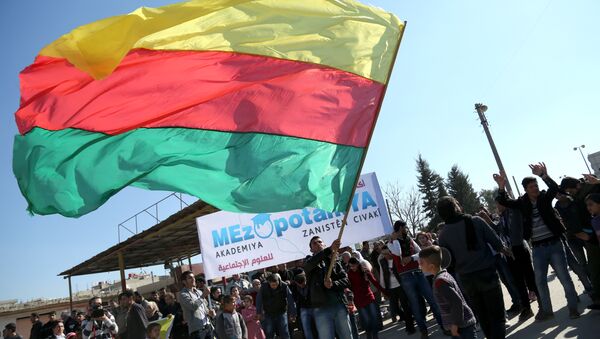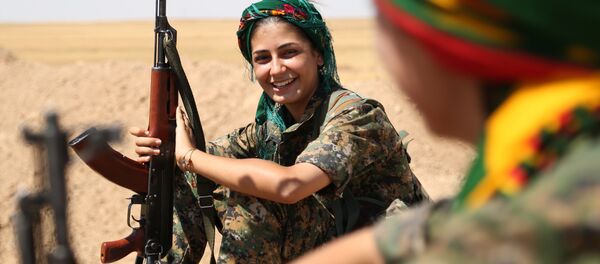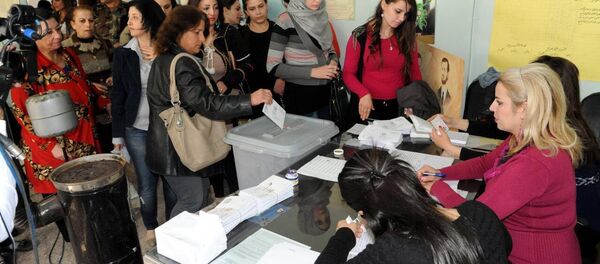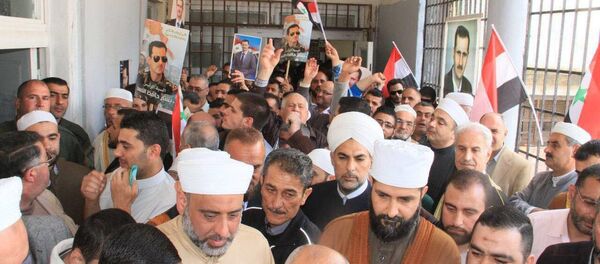According to Hisham Shaar, the chairman of the Higher Judicial Committee for Elections (HJCE), elections took place in all parts of Syria which have not been taken over by extremists. This includes Kurdish-controlled northern Syria.
"As Kurds and components of Rojava [also known as Syrian Kurdistan] we have nothing to do with these elections. Nobody went for voting. The regime of Syria used to hold such false elections since decades. Maybe such practices caused the Syrian people's revolution," Muslim said.
The Wednesday parliamentary elections were the second held in the country since the beginning of the civil war in 2011. The latest parliamentary elections were held in May 2012, with voter turnout exceeding 51 percent, which is equal to some five million people, according to Syria's electoral committee.
Kurds are Syria’s largest ethnic minority. The Kurdish population also lives in Turkey, Iran, and Iraq. Syrian Kurds say they are a part of Syria and do not strive for independence, yet have previously called for more autonomy. In March, they declared a federal region in northern Syria. The Syrian government responded by saying that the Kurds’ unilateral decision had no legal power.
Syria has been mired in civil war since 2011, with the army loyal to President Bashar Assad fighting several opposition factions and militant groups. The West and several Middle Eastern countries do not consider Assad to be the legitimate authority of Syria. In 2011, Washington imposed sanctions against him in the hope that he would step down.
Russia has repeatedly stressed that it is up to the Syrian people to decide on their leadership. In the 2014 Syrian presidential elections, Assad won a landslide victory, receiving 88.7 percent of the votes.





